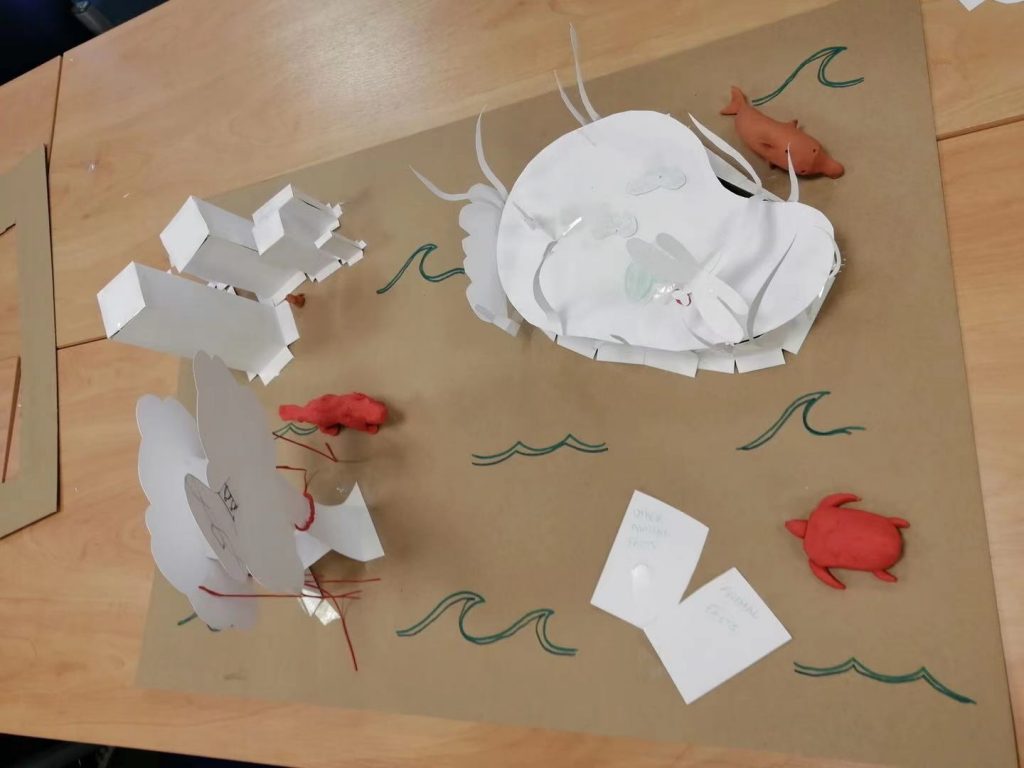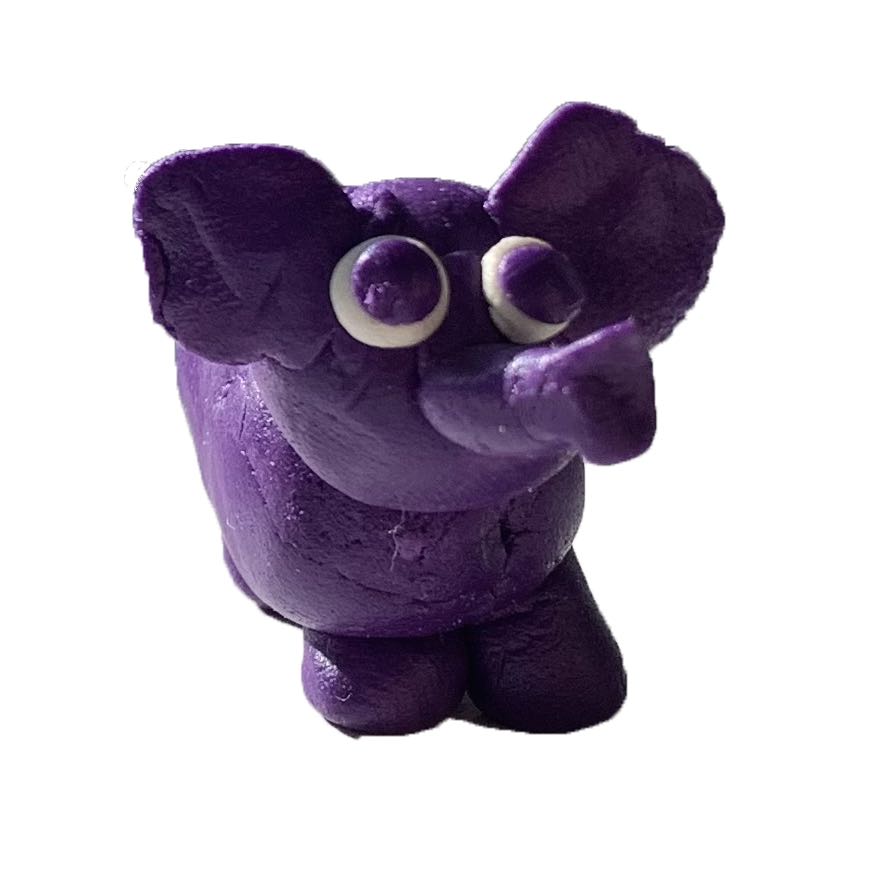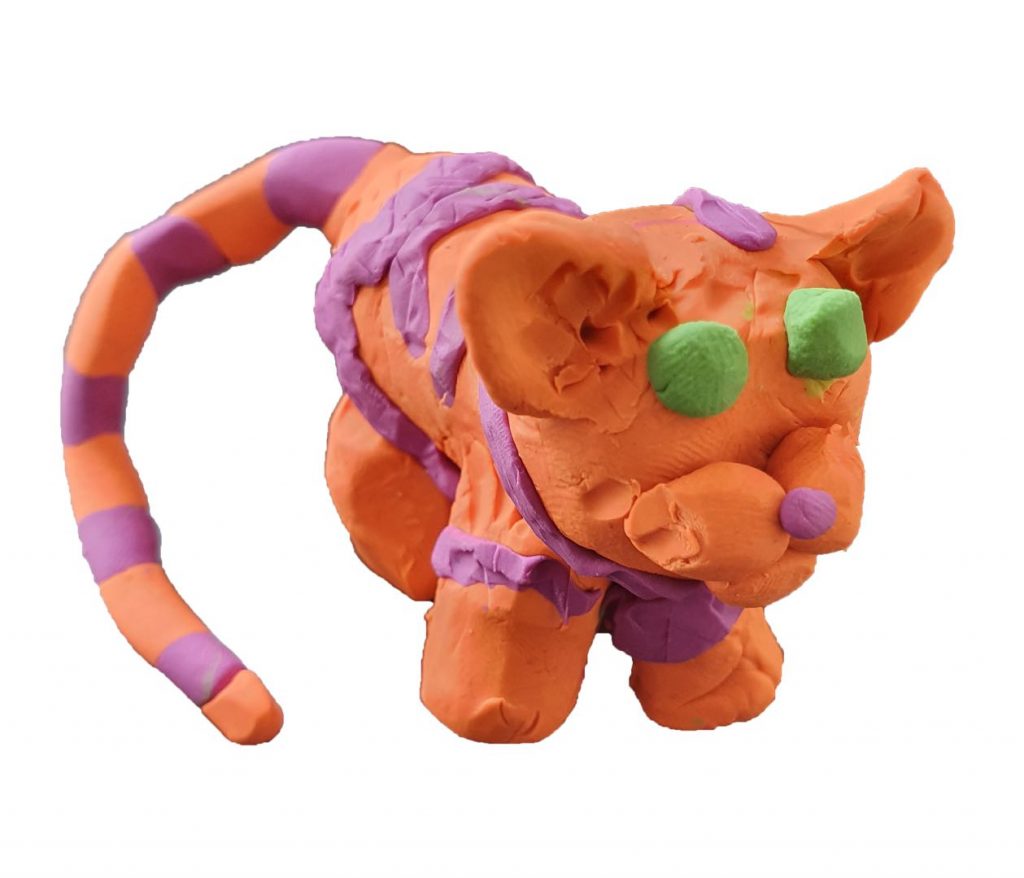Schoolchildren and public contribute their talent to restore our wildlife by creating virtual ark.

The artwork created by schoolchildren and the public, also known as the virtual ark, is a digital portfolio of works about endangered wildlife and it can be presented as in the form of artworks or writing.
It applys to strengthen the emotional connection between human and nature,deepening people’s understanding of the special and indispensable animals who share the same planet with us.
“The Virtual Ark is an amazing initiative that will help get the message out to young people, who hold the key to the future of our planet and its biodiversity,” said director of the frozen ark, professor Mike Bruford.
Cardiff University are working on a new virtual ark project of endangered wildlife project along with an award winning artist and a writer.
Besides the content created by the public, the virtual ark also shows people five endangered species in the form of virtual reality. People can help to vote to decide which five animals it would be.
“This is a dream project for me. There is something Utopian in this project, working with people of all nationalities towards a common aim, and sharing a common passion for our incredible wildlife heritage,” said Paul Evans, lead artist of the project.
The project launched by Cardiff University is due in late 2021 which aims to bring the public awareness of the fragility of wildlife heritage and what we are able to do to protect its future.
The Virtual Ark project is special not only because it is the crystallisation of the collective wisdom from all walks of life, ranging from artists, scientists, writers and the public to school children, but also it will be developed by lead artist Paul Evans with an excellent team at Human.
“People’s talents have enabled a transformative experience and the use of VR is tremendously exciting, I cannot wait to see what they produce,” said Mike Bruford.

” Virtual Ark represents a call for responsibility and a ‘duty of care’ for the human species – expressing our vital role in helping to preserve the extraordinarily beautiful diversity of life on this planet,” said Paul Evans.
The inspiration of the virtual ark project comes from creative workshops by Cardiff researchers, artist Paul Evans, writer Rowena Sommerville, the frozen ark biobank and arts and social heritage organisations Our Big Picture and Tees Valley Arts.
“As concern for the planet and the increasing extinction of animals continues to grow, I’m really pleased that we are supporting a project that raises awareness of this issue using the arts in conjunction with science. I look forward to seeing the digital artwork that results,” said Pete Massey, Director (North) of Arts Council England.

Partnered with an initiative to collect the DNA genetic samples of endangered wildlife and freeze them into biobank, known as the frozen ark, this project run by the university also emphasise the protection of endangered wildlife by the biobank.
Since 1960s, Professor Bryan Clarke FRS, a geneticist of University of Nottngham started a study around evolution and speciation of land snails of the genus Partual.
During his work here within 15 years, he witnessed all the Partual species’s extinction due to government’s biological control plan.
The giant African land snail was then introduced as a delicacy but ended up as a pest to agriculture in the late 60s. Afterwards, the carnivorous Florida rosy wolf snail was introduced in 70s to eliminate the former one, but the later turned to target the endemic snails and in the 80s, the endemic snails almost die out.
Bryan and his team bring back the remnant 12 Partual snails to Britain. taking the tissue samples to protect their DNA, captive breeding program was launched to enable Partual snails to return to their natural habitat.
The extinction of Partual snails remind Bryan to realise the importance of tissue DNA and viable cells of endangered wildlife preservation, finally giving birth to frozen ark.
“It has been amazing working with the team from Cardiff University BIOSCI through a very challenging period of time – I am very grateful for this highly supportive, productive and creative relationship,” said Paul Evans.
“It has been a pleasure to work alongside Paul and Rowena on the the Virtual Ark project delivering sci-art workshops to families with young children. I have been really inspired by the love and concern for wild animals expressed by children during the workshops and grateful for their creative contributions to this project. We hope the Virtual Ark can be enjoyed by everyone in the UK and abroad,” said Cardiff University Postdoctoral Research Associate, Dr Mafalda Costa
